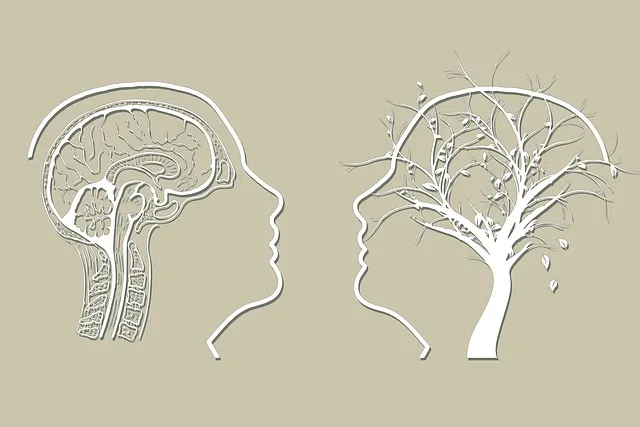Denver Kaiser Permanente's mental health locations are leading the way in Crisis Intervention Team (CIT) training, equipping professionals with specialized skills to manage acute emotional crises. Through comprehensive scenario-based learning and empathy-building strategies, these hubs empower staff with de-escalation, communication, and stress reduction techniques. This holistic approach not only benefits patients but also fosters community resilience and improved mental wellness outcomes, setting a standard for effective CIT training across the industry.
“Crisis intervention teams (CITS) play a pivotal role in providing immediate, effective support during mental health crises. This article explores the critical work of these teams and delves into comprehensive training programs, highlighting Denver Kaiser Permanente’s leading efforts. We examine key components of successful CIT training and its profound impact on patient care at Denver’s mental health locations. By implementing such programs, healthcare facilities can revolutionize crisis management.”
- Understanding Crisis Intervention Teams: A Crucial Role in Mental Health Care
- Denver Kaiser Permanente: Setting the Stage for Comprehensive Training Programs
- Key Components of Effective Crisis Intervention Team Training
- Implementation and Impact: Success Stories from Denver's Mental Health Locations
Understanding Crisis Intervention Teams: A Crucial Role in Mental Health Care

In the realm of mental health care, Crisis Intervention Teams (CITs) play a pivotal role in managing and de-escalating acute situations. These specialized teams, often composed of trained professionals, are designed to provide immediate support to individuals experiencing severe emotional crises. At Denver Kaiser Permanente mental health locations, CIT training programs have become essential components of patient care. The primary objective is to equip healthcare staff with the necessary tools and skills to handle high-stress scenarios effectively.
CIT members are taught various conflict resolution techniques and communication strategies tailored for challenging situations. By learning these methods, they can facilitate dialogue, understand underlying issues, and employ stress reduction methods to calm individuals in crisis. Such training is crucial, especially given the increasing demands on mental health services and the need for competent professionals who can navigate complex emotional landscapes.
Denver Kaiser Permanente: Setting the Stage for Comprehensive Training Programs

Denver Kaiser Permanente stands as a beacon for comprehensive crisis intervention team training programs, particularly within its renowned mental health locations. These facilities are dedicated to equipping professionals with the tools and knowledge needed to effectively address emotional crises. Through innovative and tailored programs, Denver Kaiser Permanente fosters Mental Wellness by imparting essential skills in Empathy Building Strategies, ensuring healthcare providers can offer compassionate and competent care.
The organization’s commitment to Mental Health Awareness is evident in its comprehensive curriculum that covers a wide array of scenarios, preparing teams to navigate complex emotional landscapes. By setting the stage for these transformative training sessions, Denver Kaiser Permanente plays a pivotal role in enhancing community resilience and promoting healthy coping mechanisms among those facing mental health challenges.
Key Components of Effective Crisis Intervention Team Training

Effective crisis intervention team (CIT) training programs are designed to equip healthcare professionals with essential skills for managing critical situations. Key components include comprehensive instruction on de-escalation techniques, active listening, and effective communication strategies tailored to diverse patient populations. At Denver Kaiser Permanente mental health locations, these training initiatives prioritize cultural sensitivity in mental healthcare practice, ensuring that teams are prepared to address the unique needs of every individual.
Moreover, self-care routine development for better mental health is a crucial aspect integrated into CIT training. By fostering resilient healthcare workers, these programs enhance the quality of care provided, enabling professionals to effectively support patients while maintaining their own well-being. This holistic approach, combining advanced skills with self-care practices, is vital for building robust crisis intervention teams capable of making a meaningful impact in Denver’s mental health landscape.
Implementation and Impact: Success Stories from Denver's Mental Health Locations

Denver’s Kaiser Permanente mental health locations have been at the forefront of crisis intervention team (CIT) training programs, showcasing remarkable results in community engagement and improved mental wellness outcomes. These initiatives aim to break down barriers by focusing on mental illness stigma reduction efforts, fostering an environment where individuals feel comfortable seeking help. Through interactive workshops and peer-led support groups, participants gain valuable skills in identifying crisis situations and providing effective interventions.
The impact of these programs is evident in the enhanced resilience and confidence boosting experienced by both clients and staff. By integrating stress reduction methods into daily practices, Denver Kaiser Permanente has created a supportive ecosystem that empowers individuals to manage their mental health proactively. These success stories not only highlight the program’s effectiveness but also inspire other healthcare organizations to adopt similar strategies, ultimately contributing to a more inclusive and supportive mental health landscape.
Crisis intervention team (CIT) training programs, as exemplified by Denver Kaiser Permanente’s comprehensive approach, play a pivotal role in enhancing mental health care. By equipping staff with the necessary skills and knowledge, these programs ensure that individuals in crisis receive swift and effective support. The success stories from Denver’s mental health locations highlight the tangible impact of well-implemented CIT training, ultimately contributing to improved patient outcomes and safer communities.






